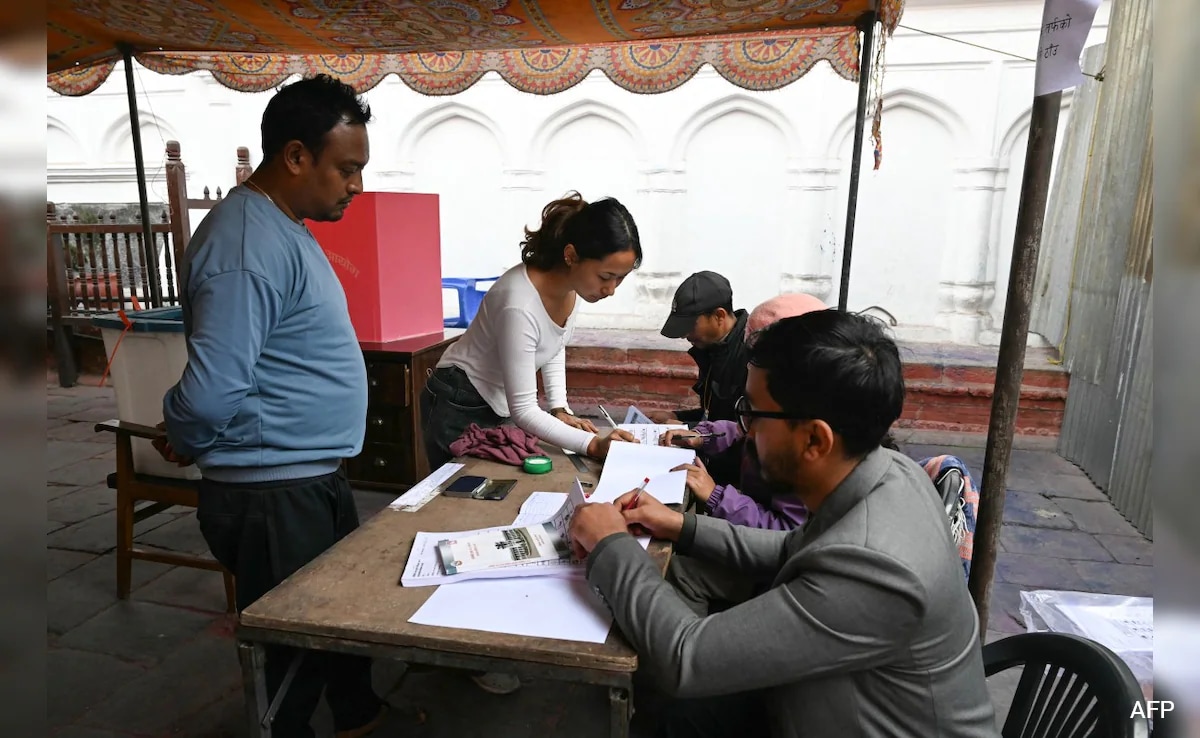Top World News
China military rapidly expands undersea warfare power
China's military is expanding its forces with new submarines and drone weapons that threaten America's undersea advantage, senior Navy officers disclosed this week.
Claims of 'rediscovered' Michelangelos unsettle Renaissance experts
An independent researcher has asserted that a marble bust of Christ in a Roman church is by Michelangelo
Putin hosts Hungary's foreign minister for energy supply talks as war in Mideast causes disruptions
Russian President Vladimir Putin on Wednesday hosted Hungarian Foreign Minister Péter Szijjártó for talks in Moscow
U.S., Israel coordinate strikes on Iran -- but friendly fire, downed American jets show the risks
The U.S. and Israeli code names for the campaign in Iran -- Epic Fury and Roaring Lion -- constitute the first truly combined military operations waged by both countries.
Brazil's Supreme Court orders the arrest of former head of Banco Master
Brazil’s Supreme Federal Court has ordered the arrest of former Banco Master chief Daniel Vorcaro in a widening probe into alleged bank wrongdoing and intimidation
2 men on trial on charges they spied on Hong Kong diaspora in the UK
Prosecutors in London say a former Hong Kong police officer and a U.K. border official acted on behalf of the Chinese government as secret law enforcement or intelligence agents in Britain
British rapper Ghetts sentenced to 12 years for hit-and-run that killed student
British rapper Ghetts has been sentenced to 12 years in prison for killing a 20-year-old Nepali student in a hit-and-run in London last year
Unlikely Trump ally convinced president to strike Iran to preserve legacy: 'He's all in'
Donald Trump's order to strike Iran had been pitched to him as a way to salvage his legacy by an unlikely ally. The president's administration carried out strikes on the Middle Eastern country earlier this week, confirming the death of ayatollah Ali Khamenei in the process. Six US military personnel have also been killed in counterstrikes carried out by Iran. The bombing campaign on Iran came to be when Lindsey Graham took Trump to task on what he wanted to be his legacy. Graham, who had previously condemned Trump as a "race-baiting, xenophobic, religious bigot" has since become a close ally of the president during Trump's second term. Speaking with Politico, Graham said, "We were thinking about this early, early on about how Iran is a spoiler for expanding the Abraham Accords and stability in the Mideast. I told him before he took office… if you can collapse this terrorist regime, that’s Berlin Wall stuff."Graham also claims he managed to cut through the naysayers on bombing Iran and convinced the president it was the right course of action to back Israel in their campaign. He said, "There was a real fight not to do it. Let Israel do it by itself, or just not do much. So we talked a lot about this: ‘Mr. President, you want to have your fingerprints on this. You want them to know America will fight.' He’s a hard sell, but when you sell him, he’s all in."Graham went on to suggest a regime change would ultimately benefit the US, and that if the new Iranian government takes the same stance as ayatollah Khamenei, the military may intervene again. "If they want to reconstitute their country, to build more nuclear weapons and more missiles to hit us, we’ll treat the new people like we did the old people," he said. "I just don’t believe it. I think they’re going to find a way to ... be a different country."'You break it. You own it.' That may be true for a consignment shop, but it's not true for foreign policy. If there's a threat, break it."
Governments scramble to bring citizens home during travel chaos caused by war in the Middle East
Governments across the world scrambled to organize the return of their citizens from the Middle East on Wednesday and air traffic seemed to be picking up slightly as travel across the region remained heavily disrupted by the widening war in the region.
How Iran plans to win: Make the U.S. burn through missiles faster than it can replace them
The conflict in the Middle East is shaping up as an ultramodern war of attrition, with Tehran betting its scattershot regional attacks will force the U.S. to overextend air-defense capabilities, leaving Gulf state allies vulnerable to Iran's drone swarms.
529 million reasons Trump and his bloodthirsty Camelot of buffoons dragged us into war
Do you ever get the feeling we’re being played like an out-of-tune violin, every minute of each day?Take this war in Iran and its first week of airstrikes. Our clueless president and his even more bloodthirsty and incompetent Secretary of “War” are offended that people keep asking what the conflict is about and why we launched it when they don’t seem to have the first clue themselves.First, it was about stopping Iran from developing nuclear warheads and ballistic missiles capable of reaching the U.S. Then it surrounded a need for “regime change,” that ridiculously benign euphemism used instead of “violent government overthrow,” which sounds so much messier. Then it was just basically, “They’re an evil, repressive country that’s the greatest state sponsor of terrorism.” Finally, it became, “We’re looking to bring liberation to Iranian citizens.”As if.The ever-changing series of justifications leaves me wondering what’s next. Maybe, “Israel was upset that Iran is positioned just in front of it alphabetically and sought help in bombing Iran until it agreed to change its name back to Persia.”It’s clear these morons had no plan, other than, “Blow up a lot of stuff because explosions are cool!” It’s as if Beavis and Butthead are running U.S. intelligence. There is no plan for the Iranian people. Basically, the marching orders are to bombard and eventually depart, leaving mass destruction and abandonment behind.Atta’ way to build global goodwill, America!Of course, attempting to distract from the Epstein files has to be near the top of any list of actual unstated rationalizations for this disaster, which is why I’ve dubbed the campaign, supposedly Operation Epic Fury, “Operation Epstein Suppression.” What’s really going on remains anyone’s guess. Whatever pops into Trump’s head becomes the defining rationale until the following minute/hour/day, when it becomes something else.This is what happens when you elect a sociopathic toddler with ADHD.Iran has supposedly been two weeks away from having enough enriched uranium to construct a nuke for the better part of four decades. It’s always what we hear.But back to Trump, our delusional and witless leader, now permitted to make unilateral decisions like which country to invade without much blowback from the increasingly compliant media, much less any explanation to the American people.So we’re clear: the Iran bombing occurred under the cover of darkness, on a weekend early morning, in flagrant violation of the U.S. Constitution.But wait! As I write, yet another justification slips through: the claim that Iran planned to preemptively strike American forces and therefore forced our hand. Gimme another 15 minutes — that will likely be refuted.Let’s put it on the record that if Trump really wanted to destroy Iran, he’d declare himself its president and take over for a couple of months. Much more effective than bombs.We must also remember that Trump was, per his 2024 campaign, the “Start No Wars President.” Then when that evaporated, he was the “No Extended Wars President.” Then early this week came the inevitable New York Times headline: “Trump Foresees Extended War on Iran as U.S. Adds to Forces.”So much for that.Uncertainty. Lies. Chaos. Corruption. The hallmarks of this administration in peacetime, now one in a war that will likely drag on long enough to both divert attention from Epstein (at least for a while) and toss the midterms into turmoil. Like everyone has predicted all along.(And wait, oh yes, it’s now been another 10 minutes, and it seems there was no confirmation of the Pentagon having feared a preemptive strike. Never mind.)And yet, there is more. It also emerged on Tuesday that one noncommissioned officer maintained he was directed to tell his troops Trump was “anointed by Jesus” and that war with Iran should be as “bloody” as possible to bring about Biblical end times — that the war was “all part of God’s divine plan” to bring about Armageddon. This is what you get when your Pentagon chief is a rabid evangelical Christian/religious zealot/raging alcoholic. As if we didn’t already have enough to worry about without casting this as some holy war to justify merciless carnage.On Sunday, the Save America Movement pointed out the following: “There has never been a military action in which the men leading it (overseen by Trump and Israeli Prime Minister Benjamin Netanyahu) have had less moral stature and integrity than this lot.“Together, they are the unfittest of the unfit. A Camelot of buffoons, warmongers, and liars. They are a team of losers and felons, pedophile protecters, fascists, weirdos, religious nutters, and weapons-grade hypocrites who are playing a deadly game with young Americans’ lives.”Add to this the fear that Iran is now highly motivated to lash out on our turf, leaving us concerned about terror attacks on land, sea, or air. On that score, the worst news is that a massive swath of our domestic security personnel is now more concerned with busting day laborers in Home Depot parking lots than defending the homeland. Priorities, people.I’d like to close with yet another possible incentive for when and why this war with Iran was launched: money.It surfaced on Monday that the gambling website Polymarket found $529 million traded on bets predicting the day when the U.S. and Israel would attack Iran. It turned out Feb. 28 was correct. Six newly created accounts made more than $1 million on that prediction. Note: Donald Trump Jr. sits on the Polymarket advisory board.Additionally, it’s instructive to note that the countries clamoring for government overthrow in Iran are the same ones that have enriched members of the extended Trump family, via direct gifts and shady deals.When the man running the country openly operates a criminal enterprise out of the White House, it’s hardly out of the realm of possibility that he might launch a war to enrich himself and those around him. In fact, it would be completely on brand.Ray Richmond is a longtime journalist/author and an adjunct professor at Chapman University in Orange, CA.
Cuba files terrorism charges against suspects over fatal US boat shooting
Cuba said it has filed terrorism charges against six suspects it says were aboard a Florida-flagged speedboat that allegedly opened fire on soldiers in waters off the island’s north coast















